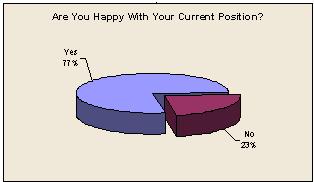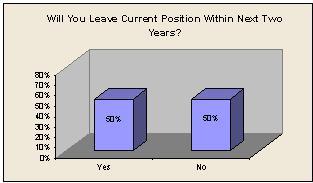by Wendy Abdo, Staff Writer, Pinnacle Health Group &
Michael P. Broxterman, COO, Pinnacle Heatlh Group
Survey Overview
In today’s competitive economy, physician recruitment is a costly undertaking. Yet when a doctor leaves, there is nothing else a medical organization can do but find a replacement as quickly as possible. The key to reducing physician turnover lies in understanding what makes physicians unhappy in their current positions.
Do you remember asking yourself if there was anything you could have done to prevent your doctor from leaving? Why did s/he leave? Was it unavoidable or could it have been prevented? Finding answers to these questions will point you in the right direction.
In an effort to help medical facilities improve physician retention, Pinnacle Health Group has conducted a survey that provides some eye-opening answers. We have surveyed doctors as well as experienced physician recruiters and have asked them a series of direct questions on the top reasons why doctors leave. The physician portion of our survey was sent to 2,500 doctors in ten different specialties with a response rate of approximately four percent. In addition, we also surveyed physician recruiters employed with Pinnacle Health Group to gain several perspectives on the issue. Read on to see what we discovered and how these results contrast with last year’s data.
List of Top Ten Reasons Why Docs Leave
Our survey indicated the need for better salary was the number one reason why physicians leave followed closely by high malpractice premiums. Number three on our list consisted of three common problems: underutilized medical skills, the desire for upward advancement, and long and/or undesirable hours. Note that the recruiters surveyed picked out the same issues as physicians. However, recruiters also listed family issues like divorce and marriage as important factors in why doctors search for other opportunities. Alternately, concerns that scored high with physicians but not with recruiters included the desire for upward advancement and lack of appreciation.
Physician’s Countdown List:
#1 Higher Salary
#2 High Malpractice Premiums
#3 Underutilized Medical Skills
Desire for Upward Advancement
Hours Too Long/High Call Schedule
#4 No Autonomy (Lack of Control)
Lack of Appreciation
#5 No Choice Due to Restructuring
#6 Wants to be Closer to Family
#7 Bad Relations with Hospital Administration
#8 Bad Relations with Medical Faculty
#9 Desires Another Climate
#10 Family is not Comfortable in Community
Explanations
#1: Higher Salary
As last year’s study indicated, the need for better compensation, namely higher salary, is still a top priority to doctors. In the open-ended portion of our survey, physicians commented on the need for better benefits, incentives, bonuses, and more vacation time. One doctor remarked, “provide better revenue and improve work conditions.” A Family Practician responded by suggesting “periodic bonuses with or without incentive-based pay.” Others asked for more compensation for extended hours and loan repayment. One doctor stated that “in the Northeast, on an hourly wage, primary care physicians make on par with many bachelor’s level occupations. Given the duration and intensity of physician training, as well as educational debt incurred and lost years of income, primary care seems not a responsible financial decision. Perhaps recognizing this reality and working to address it with compensation or loan repayment may help retention in areas where this is a concern.”
#2: High Malpractice Premiums
A big issue facing many doctors is rising malpractice premiums. Compared to last year, malpractice is on the minds of more physicians this year and has gone from number ten to second on our list. Many physicians are actively looking for relief. Some even relocate to other regions in the United States to avoid high malpractice rates. A General Surgeon observed that “state legislature support for malpractice reform must be strong,” and an Anesthesiologist called for “more physician advocates in the insurance industry.” Another doctor responding to our survey advised, “Listen to the physician’s ideas, assist with malpractice rates until premiums decline, and help us make our practices meet financial goals.”
#3: Underutilized Medical Skills / Upward Advancement / Long Hours and/or High Call Schedule
Physicians ranked underutilized medical skills, the need for upward advancement, and long hours and/or high call schedules third on our survey questionnaire. A Cardiologist who is otherwise pleased with his present position commented that his job did not draw on all his available skills and expertise. He also mentioned that he was actively looking for a “more challenging situation that is bigger and more complex.”
Upward advancement is also important to physicians as mentioned by a Family Practician on the West Coast who is looking for another opportunity because he has no chance of advancement where he is now.
Physicians are also bogged down by long hours and high call schedules. Last year, long hours/heavy call schedules ranked ninth on our top ten, this year it has increased to third place. When asked why he had no intention of leaving, one doctor explained that “regular hours, benefits, decent pay, reasonable support personnel, and low administrative workload” are the primary reasons why he is staying where he is.
#4: No Autonomy / Lack of Appreciation
No autonomy and lack of appreciation came in at number four on our survey. Physicians asked for more control and respect in their practices. Comments such as, “provide physician autonomy and professional appreciation,” “allow more control over support staff,” and “appreciate professional position” were brought out. A Family Practitioner stated, “in the business model for a hospital-based practice, physicians seem to be treated as cash factories with constant pushing to drive up productivity.” Likewise, an Anesthesiologist mentioned that “physicians should not be treated as just a disposable commodity.” One General Surgeon ended by commenting, “physicians are easy to retain. You just need to show you appreciate them and take their concerns seriously.”
#5: No Choice Due to Restructuring & Declining Practice
There are times when doctors have no choice. Companies go out of business everyday and so do medical organizations. An OB-GYN stated that he was “going broke with less from HMO’s” and that “rising malpractice insurance” was driving him out of business. Whether people retire, move away, or the business declines due to decreased revenue, those who are working there will be affected. When a practice is restructured, physicians may be forced to search for other opportunities.
#6: Closeness to Family
Naturally, a physician will look for career opportunities that are closer to his or her family and friends. In our study, one Neurosurgeon who was otherwise happy in her present job stated her reason for moving to another position was to be closer to her family. In addition, an OB-GYN commented that it is “extremely difficult trying to balance work and family life.” It is even more difficult to do this when the physician moves to a town far away from friends and family. Over time, this distance could compel the doctor to move closer to relatives.
#7: Bad Relations with Hospital Administration, and
#8: Bad Relations with Medical Faculty/Colleagues
Seventh and eighth on this year’s list are bad relations with hospital administration and colleagues. This year’s rankings are consistent with last year’s survey results. One Radiologist didn’t like the “politics with partners” and “the way power or influence with the administration was handled.” These issues can lead to a decrease in morale and leave the physician feeling s/he is working in an unsupportive, stress-ridden environment. One doctor suggested that administration should “allow for meetings between parties as to how to improve and expand a practice” and to “assist in advancing the office atmosphere to be more patient-friendly rather than pushing the patients through.” Another physician said, “listen to our concerns and quit talking adminispeak.” Many more also emphasized the need to listen to physicians and actively involve them in the decision-making process. Obviously, better communication is vital in maintaining a positive work environment.
#9: Physician Desires Another Climate
What can you do when a doctor who lives in Alaska requires a warmer climate? Not much. This does not mean that all physicians seek out warmer climates, however. There are many doctors who enjoy cold weather activities like snow skiing or who would like to move to a small rural town or territory similar to where they grew up.
#10: Family is not Comfortable in the Community
This factor came up as number ten on our list. Family issues are a driving force in whether physicians stay put or move on. An Orthopedic Surgeon can move to a rural location that offers the best compensation, state-of-the-art technologies and advancements, but if her spouse and children are unhappy, chances are the physician will not stay long.
Statistical Results


Our responses indicated that 77 percent of physicians included in the survey were happy in their present jobs. However, 50 percent indicated that they anticipated leaving within the next two years. As you can see, some external factors are out of the hands of medical facilities.
When we broke out our findings into ten specialties, we found that Orthopedic physicians and Cardiologists were the ones most likely to stay in their current jobs. A majority, 73 percent of Orthopedics and 70 percent of Cardiologists, chose to stay where they were. In contrast, General Surgeons had the highest percentage of doctors who anticipated leaving with 11 out of 14 deciding to find other opportunities followed by Radiologists with 7 out of 11 planning to leave soon. Internists and Neurosurgeons who responded were evenly split. Fifty percent felt it was likely they would leave; whereas, the other 50 percent expected to stay.
Conclusion
Many factors lead physicians to seek out new opportunities. Some are within your control, while others are not. Usually, there is a combination of reasons that add up to the physician’s ultimate final decision. However, each physician has a unique set of circumstances that relates to his or her own situation. Yet, recognizing the underlying factors that motivate doctors to move on will prove valuable in improving physician retention, presenting your opportunities properly, and signing on the physicians who are best-suited for your organization’s needs, geographic location, and working environment.